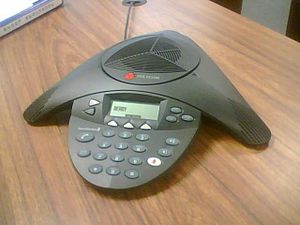6 Tips on Leading an Effective & Efficient Conference Call
Let’s face it, conference calls are even more of a necessity in many industries today. When managed properly, they are an effective means of communication and a valuable business tool because they decrease travel costs and increase the speed of decisions.
Below are some of the key tips I have found effective to use when leading a call.
- Prepare an agenda. Always have your agenda prepared prior to the call and never attempt to ‘wing it’. As the meeting organizer, it’s your responsibility to take the lead, make sure the proper people/departments are invited, and create an outline that’s easy to follow. Be sure to include talking points under each bullet to keep the call moving along. Send out the agenda prior to the call so people can see the review the items and prepare their own notes.
{{cta(’98f38b19-1371-4c85-aeb1-0d6d520286d6′)}}
- Arrive Early. As the leader of the call, do your best to be the first person present. This is even more important when there are a large group of people joining the call. By being the first person present, you can check-in attendees as they dial into the bridge. This avoids the inconvenience of joining right on time and having to ask, ‘Who is on’. This is an extremely inefficient use of time as several will speak over each other attempting to announce their presence. Quite simply stated, this is not being respectful of other peoples’ time.
- Don’t talk too much. I had the opportunity to sit through a seminar several years ago, the presenter suggested you pick at least one meeting per week and just ‘listen’ for 15 minutes without speaking. That certainly may not be possible for the call’s leader, however, the point remains. Make sure the call is interactive. Remember, people are busy… and most likely trying to remain productive by multi-tasking during the call. By calling on individuals from time to time, you keep them engaged.
- Give a Heads up! A good rule of thumb I use is to say the person’s name prior to calling on them to speak. For example, ‘Sally, what are your thoughts on the subject?’, as opposed to, ‘what are your thoughts on that Sally?’. Keep in mind that you are not face-to-face, so this bit of etiquette goes a long way in avoiding the hassle of repeating questions or listening to them stumble through a question they did completely hear because they were multi-tasking and not paying full attention. Everyone in the meeting will appreciate the time to gather their thoughts before having to answer.
- Notes! Ask someone to be a scribe or take notes yourself during the call. It is nearly impossible to recall from memory all items discussed a few hours later, let alone a few days after the fact. Notes will allow you to create a reference document to follow-up and to track the progress of the initiative or project. The added benefit of having someone else take the notes is you can concentrate on leading the call.
- Wrap it up! When the call is nearing its end, it’s good to frame the takeaways and assign owners. This will remove any doubt as to the items discussed and the owner of each individual part of the process. At this same time, establish timeframes for completion and schedule the next call (if applicable).
These simple tips will help. Happy Calling!
Related Articles:
{{cta(‘086bd7a8-05a0-4877-9c40-8458bb49ecd0’)}}
Request more info today
Tell us about your program and we'll get back to you ASAP.

